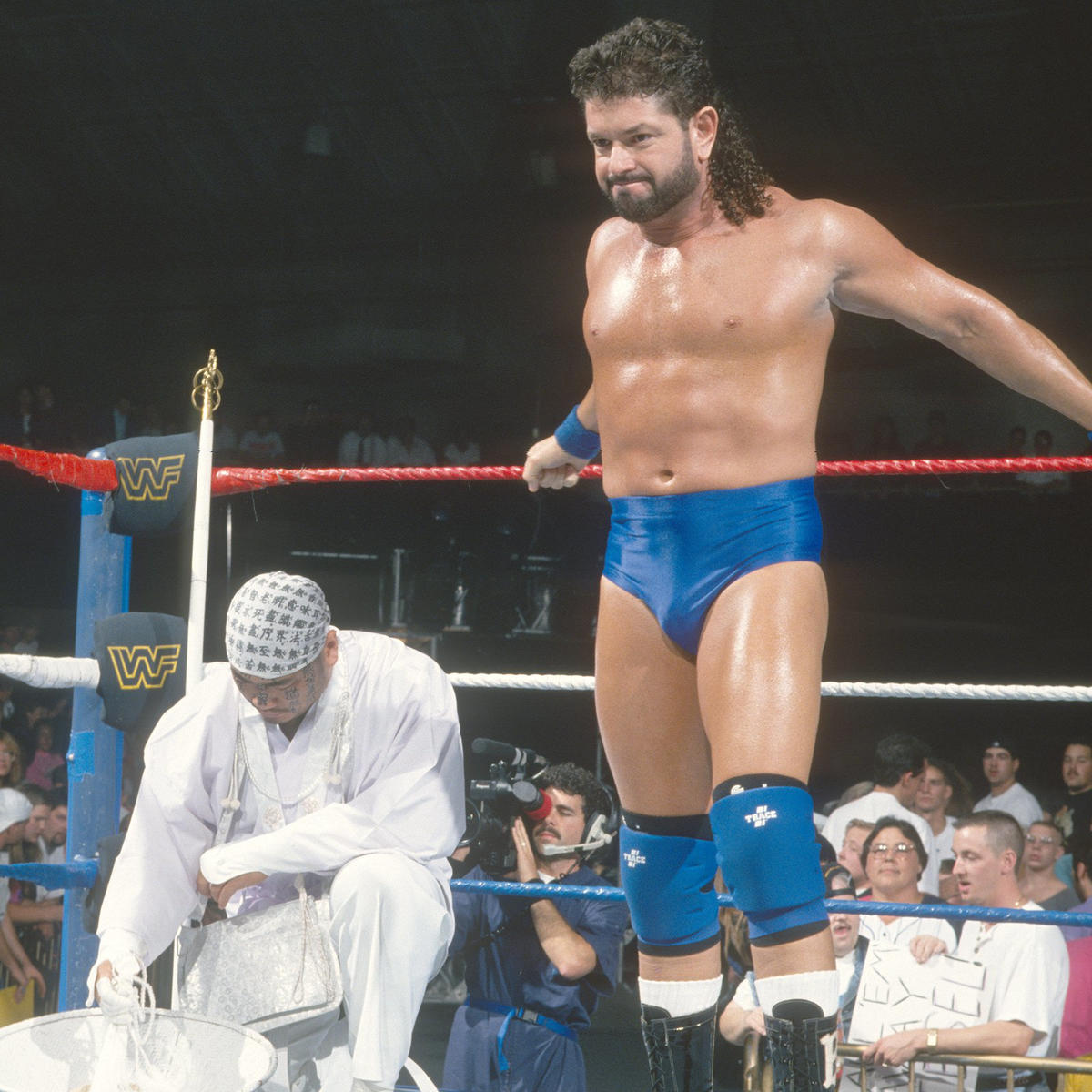Hey, you might be thinking, teaming with Bret Hart sounds pretty good.
But I didn’t say he was teaming with Bret Hart. I said he was teaming with Brett Hart…
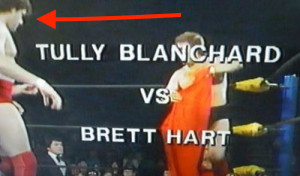
…better known as jobber of jobbers, Barry Horowitz.
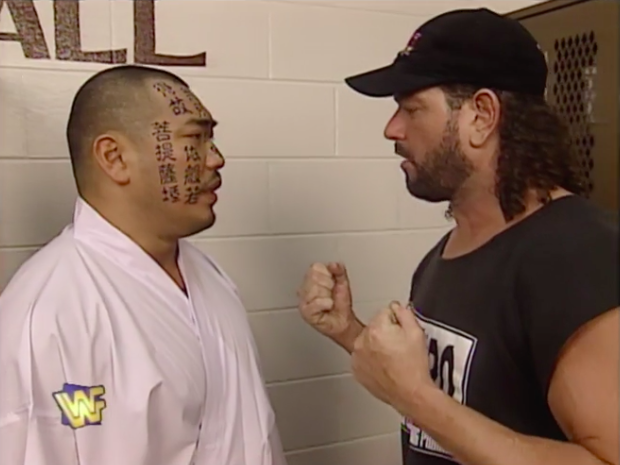
This week, we look at how one up-and-comer and one perennial loser met in the middle… in terms of both culture and win-loss record.
The Odd Couple pairing of Hakushi and Horowitz had its origins the afternoon of Summerslam 1995. You’ll recall that Bodydonna Skip was the first man in the WWF to ever be pinned by Barry Horowitz, but do you remember who the second man was?
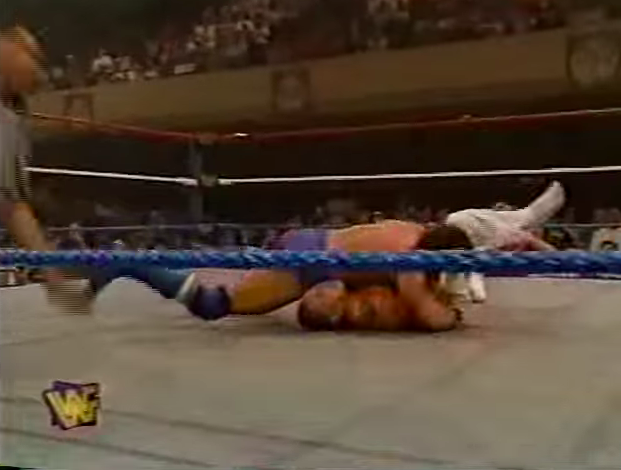
That’s right, it was our friend Hakushi…
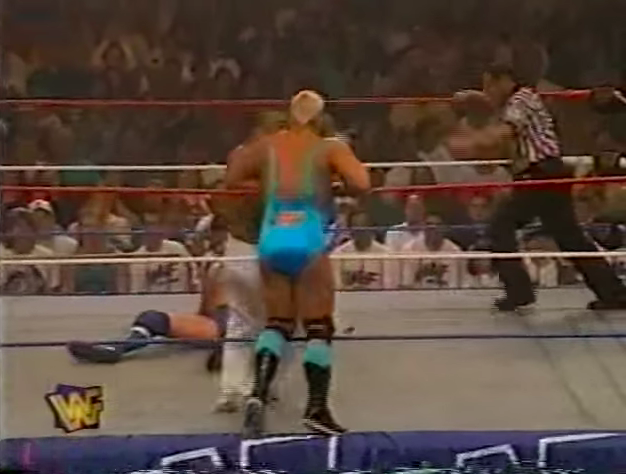
…who ran afoul of Skip’s botched interference on USA’s pre-taped Action Zone. This allowed Horowitz to pick up a victory in his first of two matches that day.
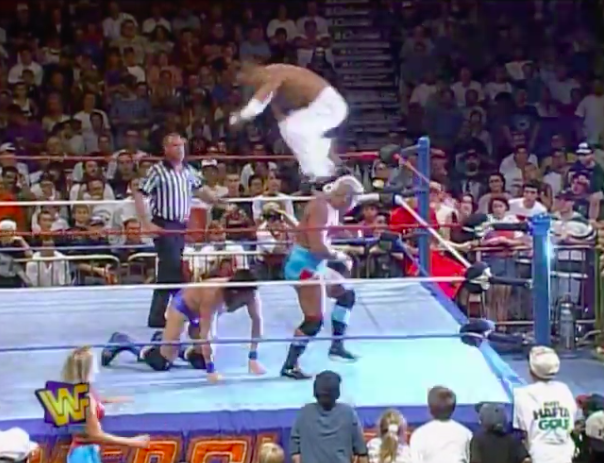
Hakushi returned the favor by interfering in Skip’s match with Barry at the pay-per-view, handing Horowitz an unprecedented two victories in one day.
Soon, Barry and Hakushi were helping each other out on the regular. It wasn’t long before the Japanese star took the former enhancement talent under his wing.
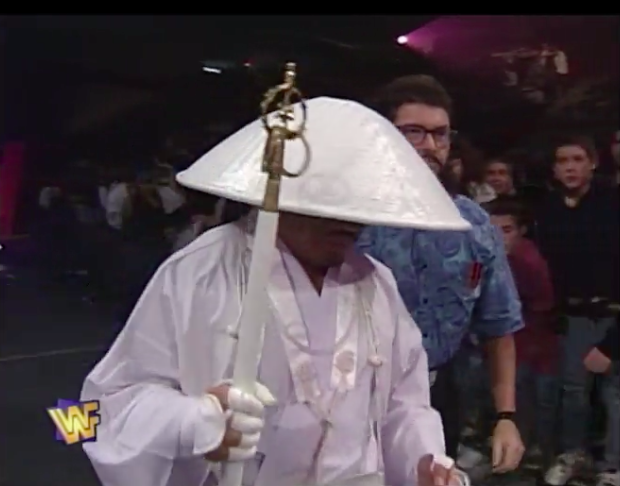
Sorry, I got that mixed up. It was the former enhancement talent who took the Japanese star under his wing. You see, Hakushi needed to get over with the American fans, and who better to help him out than Barry Horowitz?
In a series of backstage vignettes, Horowitz did his best to Americanize the modern-day kamikaze. First there was a pop quiz on the American system of government. The “boss” of the United States, as Horowitz put it, was the president.
The emperor? wondered Hakushi, struggling to grasp the concept.
I’ve seen more sensitive cross-cultural communication on Are You Being Served?
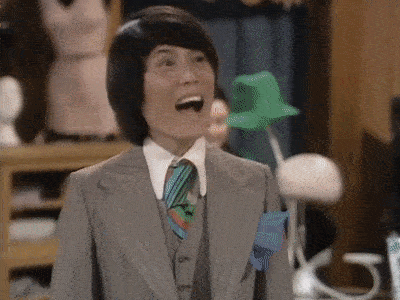
Alright, that’s obviously not true. But what hope did Hakushi have of identifying the President of the United States if he didn’t have any understanding of the office? But finally, he remembered.
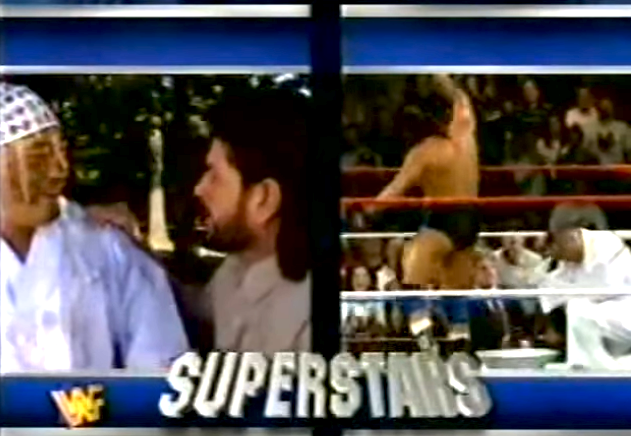
Cracking his first and only on-screen smile, Hakushi answered, “Oh, Hillary!”
“HAHAHAHAHAHAHA!” chuckled McMahon. This was a running joke in the 1990s. Who would have thought that two decades later, Hillary would also not be president?
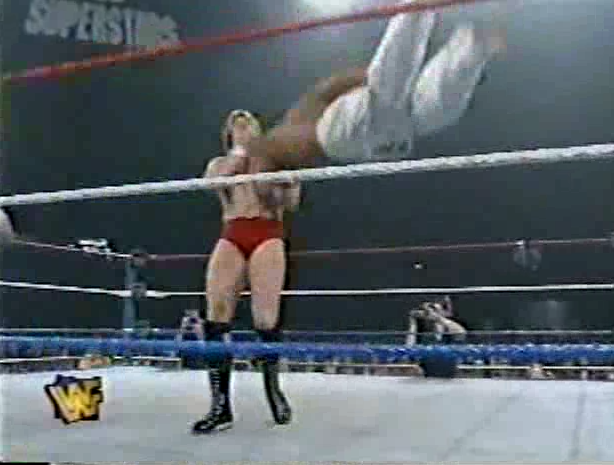
During every Hakushi match for months, Vince McMahon would comment on how well Hakushi was acculturating himself to the American way of life, including, I kid you not, the use of top-rope moves…
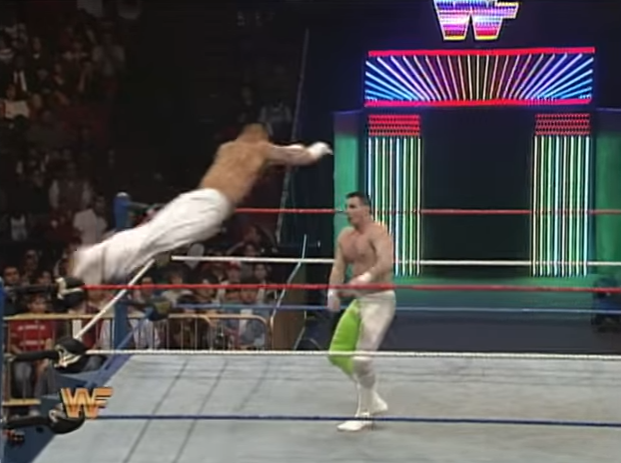
…as if Hakushi hadn’t been doing those since his debut match.
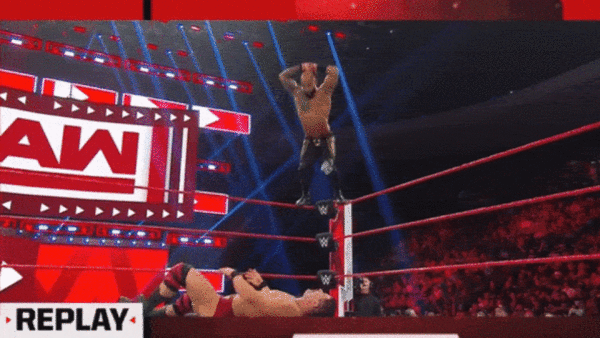
Say, do you think Ricochet was trained by Barry Horowitz?

Not everyone was happy about the newfound alliance of Hakushowitz. Jerry Lawler, the same race-relations expert who had accused Bret Hart of making “slanted remarks” against the Japanese, said it wasn’t kosher. As if he needed to spell it out further, he wondered whether Horowitz would have Hakushi trade in his “lamp shade” for a yarmulke.
“Why not!” chimed in the open-minded Vince McMahon. “Whatever works here in the WWF!”
In case you didn’t catch on, Barry Horowitz is Jewish. They say that when a wrestler wear spandex, you can tell his religion just by looking at the front of his trunks, and Barry Horowitz of course was no different:
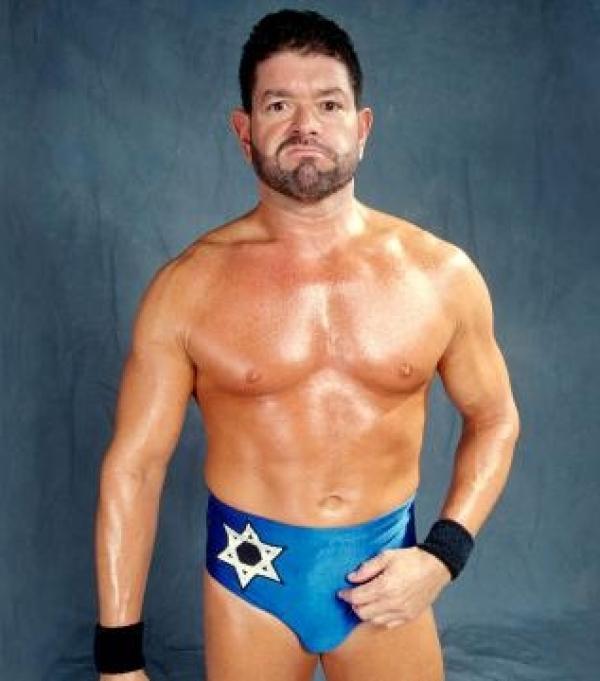
Hakushi and Horowitz would grow even closer as the weeks and months wore on. Barry asked Hakushi to name the American baseball player who was the greatest home run hitter of all time. Horowitz kept hinting for him to say, “Babe Ruth”, but Hakushi refused.
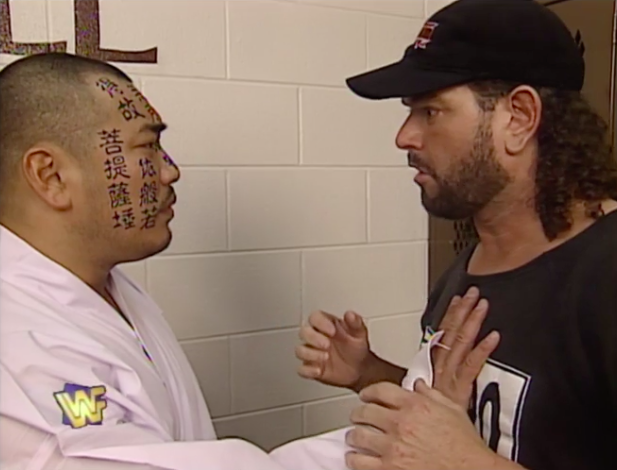
“No, Hank Aaron!” he insisted, and Horowitz had an epiphany. How could he forget Hank Aaron? Bill Watts, who was booking the WWF at the time, certainly couldn’t.
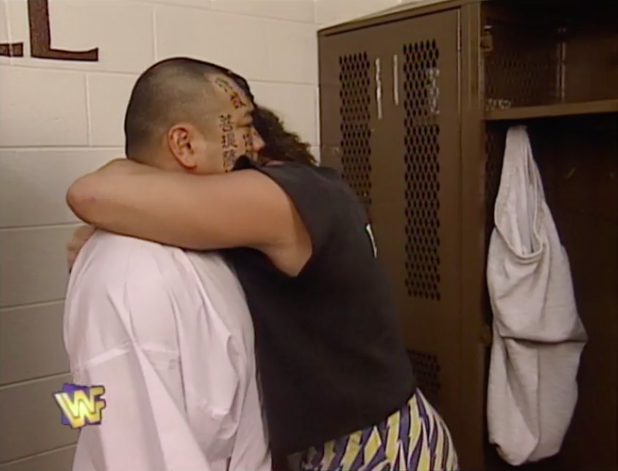
Barry then gave Hakushi a big celebratory hug. “You’re learning!”
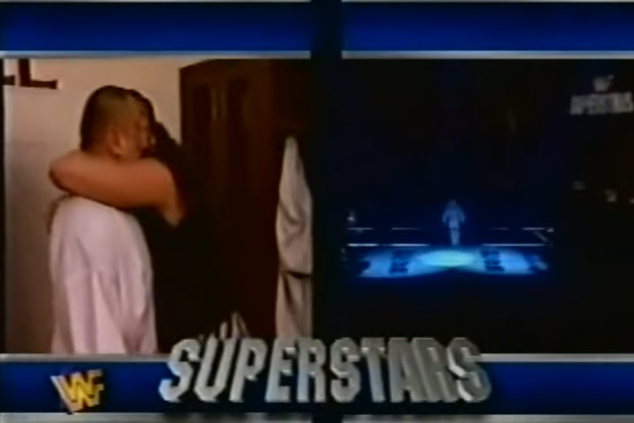
This moment was so important, the WWF played it on both Raw and Superstars.
It wasn’t all smooth sailing for the mentor and his protege. Around Survivor Series, the team verged on a break-up over their seemingly insurmountable cultural differences.
Barry liked Babe Ruth, Hakushi liked Sadaharu Oh. Barry liked cheeseburgers, Hakushi liked sushi. Barry liked Coke, Hakushi liked Pepsi.
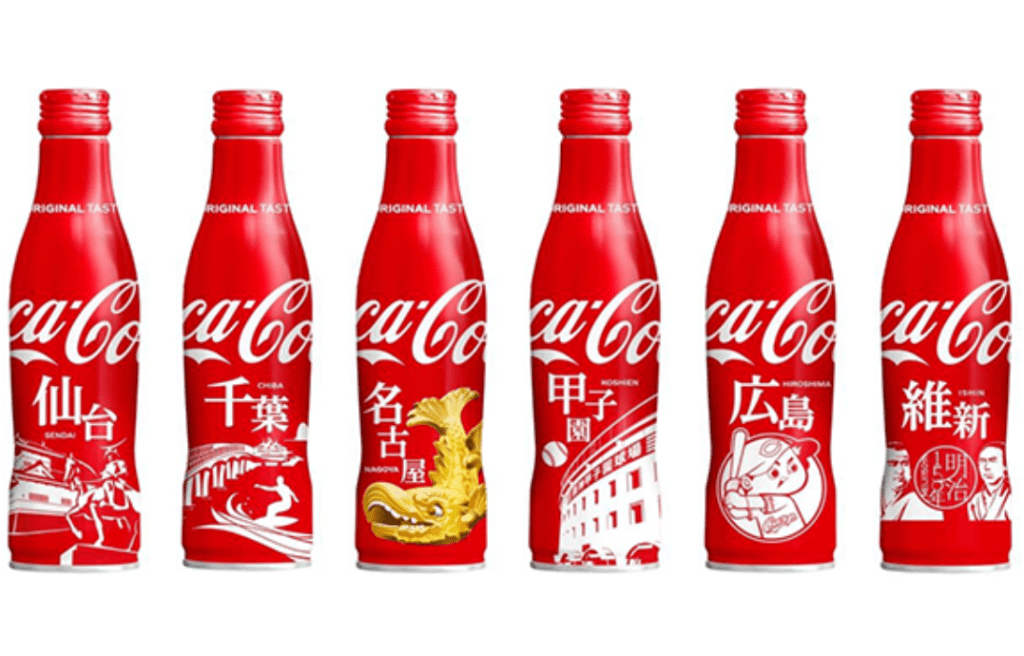
That last one sure surprised me. I didn’t realize they didn’t drink Coke in Japan.
Horowitz was ready to come to blows with his friend, who instead suggested a heated battle of another sort: Milton Bradley Karate Fighters!
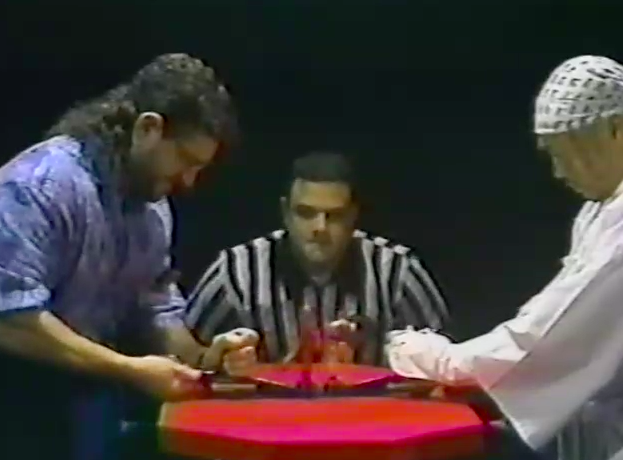
Horowitz ended up beating Hakushi – putting him at 2-0 overall.
Whatever bad feelings that lingered between the two men was surely cleared up over Thanksgiving, when Barry had Hakushi over for gefilte fish and matzoh ball soup. Hakushi still wouldn’t wear a yarmulke, or as Mr. Perfect called it, a Yakima.
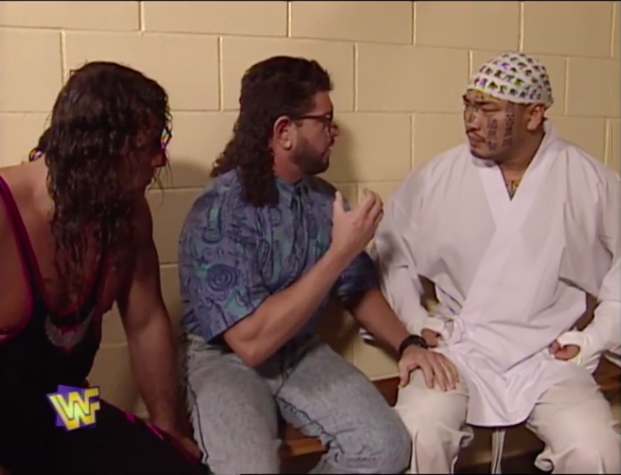
More trouble brewed when Hakushi teamed up with Bret Hart (the real one, this time) against Jerry Lawler and Isaac Yankem. Barry intercepted The King before he could use a foreign object, but was caught by the referee, costing his buddy’s team the match via disqualification.
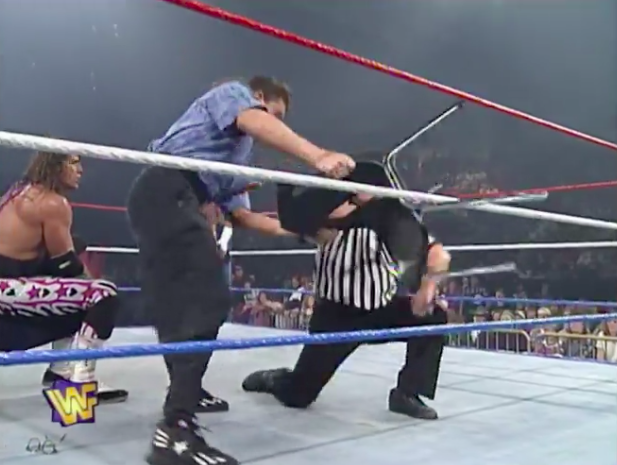
I’m sure Hakushi forgave Horowitz; after all, how was Barry supposed to know he’d get disqualified for simply holding a chair – and a plastic one at that!
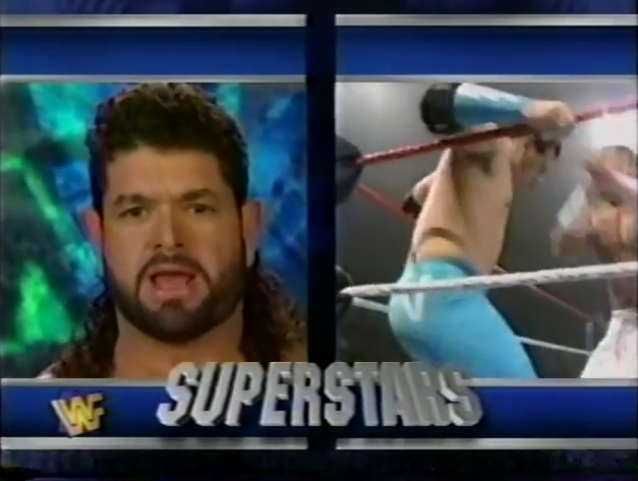
There was one other event that threatened the friendship of the two men: the Royal Rumble, where both men would be competing. Just to avoid any misunderstandings, the “nerdly” Horowitz reminded Hakushi in slow, broken English, that the match was an every-man-for-himself contest. If it came down to the two of them, it would be “sayonara” for Hakushi.
As inspiring as it would have been for Horowitz’s boyhood dream to come true in the main event of Wrestlemania, both he and Hakushi were eliminated long before the end of the Royal Rumble. In fact, they were never even in the ring at the same time (although, for the record, Horowitz lasted longer than Hakushi).
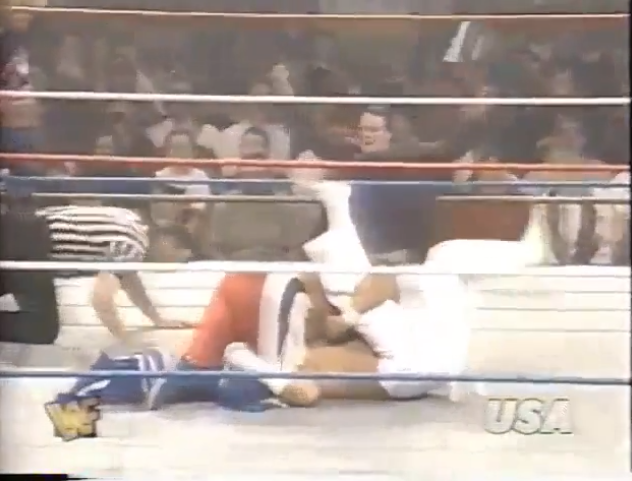
For all of Hakushi’s cultural learnings, his alliance with Barry Horowitz didn’t help his career a lick. He might not have picked up much English language or American culture, but in no time, Hakushi had picked up Barry Horowitz’s habits, namely losing a lot.
Barry’s jobber stink (sorry Barry, I know you hate the j-word) rubbed off on Hakushi so bad that the former Bret Hart rival was put on a team called “The Underdogs” at Survivor Series –
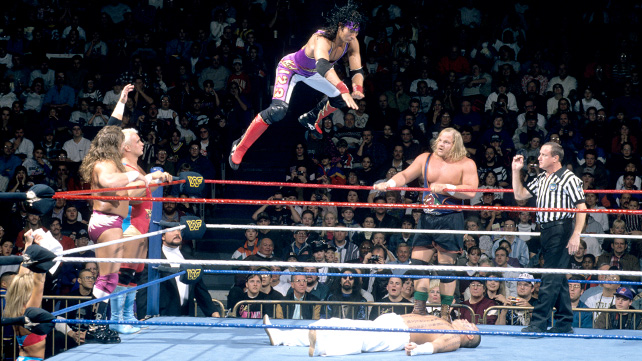
– underdogs against a team that included Skip, Rad Radford, and only one of the Heavenly Bodies, in fact.
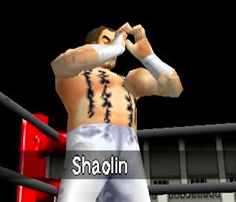
His career derailed, Jinsei Shinzaki left the WWF in early 1996 and returned to Japan, making a return to the US a few years later in ECW, and making uncredited appearances in WCW video games.

